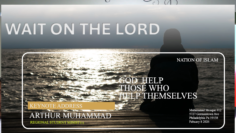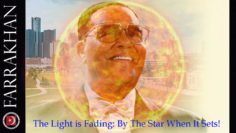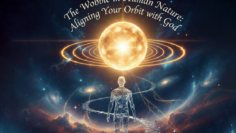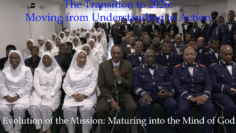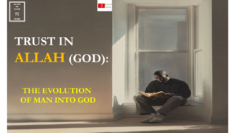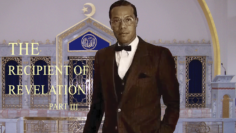
The Flag Of Islam – Representing Freedom, Justice, and Equality
This powerful lecture features insightful messages from Student In The Ministry Joseph Muhammad and Student Minister Rodney Muhammad, drawing on the teachings of the Nation of Islam.
Student In The Ministry Joseph Muhammad opens the session with a prayer, expressing gratitude to Allah for the coming of Master Fard Muhammad and Elijah Muhammad, and for the guidance of Minister Louis Farrakhan. He highlights Master Fard Muhammad’s profound love for black people, discerning a “jewel” within them that others could not see. Joseph Muhammad emphasizes the God-like quality of forgiveness inherent in black people, who are often the first to forgive even without being asked. He underscores the importance of unity among black people, noting that their shared “black skin” is the commonality under which they should unite, as it is the primary reason they experience suffering. The minister addresses the damaging concept of “good hair” versus “bad hair,” explaining it as a tool used to destroy black identity. He quotes Minister Farrakhan on the prevailing perception that “black is not the standard of beauty” in the world, contrasting it with the pure beauty of sub-Saharan African complexions. He then urges self-reflection, asking black people how they truly see themselves – whether through the distorted lens of their former enslavers or as “children of the creator”. Joseph Muhammad also points out internal prejudices within the community, such as showing leniency to lighter-skinned individuals while being harder on darker-skinned ones. He concludes his address by identifying four major impediments to progress as taught by Minister Farrakhan: sexism, racism, nationalism, and materialism, calling for self-examination, self-analysis, and self-correction to overcome these obstacles.
Student Minister Rodney Muhammad, the keynote speaker, builds upon these themes, expressing gratitude for Master Fard Muhammad’s intervention and the teachings of the Honorable Elijah Muhammad and Minister Louis Farrakhan, whom he refers to as “the voice of God today”. He asserts that the Nation of Islam exists not merely to lament suffering but because a divine solution has arrived. He emphasizes that knowledge of God and self is paramount, using the movie Total Recall as an analogy for how black people were “infected with a false set of beliefs” and need a “recall” to their true identity. Minister Muhammad stresses the urgency of understanding the “knowledge of the time” and warns against “lowballing” divine warnings, comparing it to ignoring flood warnings. He delves into the biblical story of Cain and Abel to illustrate the danger of approaching God on one’s “own terms” and lacking a “need for atonement”. True religion, he states, involves conforming to God’s will and accepting responsibility, including social responsibility; failing to warn others of wickedness makes one an “accomplice”.
Minister Muhammad then focuses on the flag of Islam, explaining its deep meaning. He notes that Master Fard Muhammad declared independence for black people on July 4th, 1930, contrasting it with the 1776 Declaration of Independence which did not apply to them. He connects Master Fard Muhammad’s age of 53 during this declaration to the 53rd surah of the Holy Qur’an, “The Star,” signifying one taught by “one mighty in power”. He critiques the American flag’s symbolism, stating its red indicates interference with freedom, and the absence of a moon (symbolizing equality) indicates that it will not be given. The star in the American flag, representing justice, sits in a field of blue, an “untrue color,” indicating that justice always eludes them.
In contrast, the Sun, Moon, and Star of the Flag of Islam represent profound truths. The Sun symbolizes freedom and the unequaled wisdom of God, constantly renewing and providing light (spiritual sight) to both the righteous and the wicked. The Moon represents the prophets, who reflected light and prevented civilization’s complete collapse, holding back the “waters” of chaos. The moon, once part of the Earth, symbolizes the potential for black people to “build like anybody else” if their “water of life” (knowledge of God and self) is restored.
Minister Muhammad also discusses the “war of Armageddon” as a “holy war” commanded by God to break the “unrighteous rule of Satan”. He explains that their warfare is not “carnal” but “mighty through God,” able to “pull down strongholds” and “cast down imaginations” that oppose divine knowledge. He emphasizes that true freedom comes from self-responsibility and growth outside of comfort zones. He highlights the dangers of individualism, which poisons black life and prevents collective advancement, stressing the importance of strong families as the “cell of a nation”. He appeals to listeners to accept the reality revealed by Minister Farrakhan, promising that their lives will improve when they align themselves with this truth. The lecture concludes with an invitation to take the “next step” within the Nation of Islam for training and personal growth.
Throughout the lecture, Minister Muhammad also incorporates practical advice, such as the benefits of following the Honorable Elijah Muhammad’s dietary teachings, including eating one meal every 24 to 48 hours for health and preparedness.






